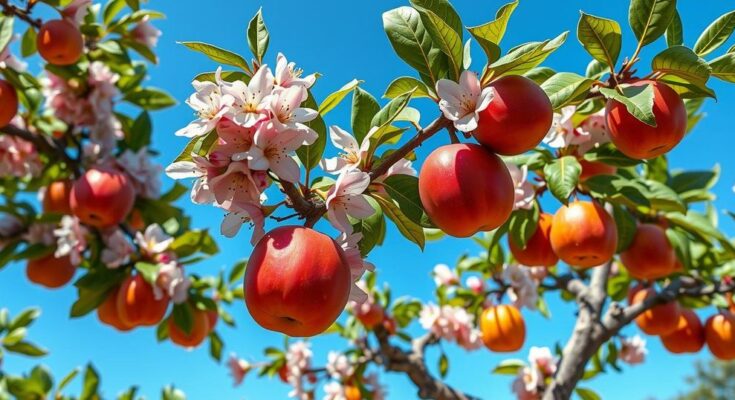Verfrut anticipates a 20% increase in stone fruit exports for the 2024-2025 season, facing challenges such as smaller fruit sizes and market uncertainties. Focused on strategic market positioning, particularly in North America and Asia, the company aims to adapt to consumer preferences while managing rising logistics costs and potential market risks.
Chile’s stone fruit season for 2024-2025 is underway, with Verfrut projecting a 20% increase in exports compared to the previous year, totaling approximately 2.7 million boxes. Sebastián Rodríguez, the company’s commercial director, noted challenges such as early plum variety issues and uncertainties in the Asian market, particularly regarding nectarines. Moreover, this season’s fruit sizes are smaller than those of previous years, prompting the company to seek optimal markets for each variety to enhance profitability.
Rodríguez emphasized the importance of various markets, stating, “North America is always important for all three varieties. Asia is especially important for white-fleshed nectarines and high-Brix plums. Latin America is a key market for peaches, while Europe and the UK are essential for nectarines and small plums.” He pointed out the complexity of the Chinese market, where exports of cherry fruits are significant and economic conditions are fluctuating. Verfrut currently focuses on exporting only white nectarines to China, responding to the taste for sweet, slightly acidic fruits with specific size preferences.
In January 2024, Verfrut was acquired by Unifrutti, part of the Abu Dhabi ADQ group, which aims to enhance its global fruit platform. Rodríguez highlighted the ongoing integration process, stating, “We are working together on strategies to align our markets and complement each other.” This year presents a mixture of opportunities and challenges that the company aims to navigate, including positioning brands effectively, maintaining quality, and promoting Chile’s exceptional produce, particularly in winter for Northern Hemisphere consumers.
Logistical challenges represent one of the greatest concerns, with rising transport costs nearing pandemic levels and service reliability in question. Rodríguez noted that “the recent heat waves in Chile and the cold weather in the markets where we send fruit can affect production and consumption.” He concluded with a warning against oversaturating markets and stressed the importance of diversifying market strategies to safeguard returns.
The stone fruit season in Chile is critical for agricultural exports, with significant impacts on the economy and the global fruit market. Verfrut, a notable player in this sector, grows an array of stone fruits over extensive land. The forecast of increased exports reflects a recovery and potential for growth amidst industry challenges, including shifting market demands and logistical hurdles. Understanding market dynamics, customer preferences, and the geopolitical landscape is essential for successful fruit exportation.
In summary, Verfrut is poised to enhance its stone fruit exports by 20% this season, focusing on strategic market engagement amidst challenges posed by variable fruit sizes and market conditions, particularly in Asia. The recent acquisition by Unifrutti positions the company to innovate and align market strategies effectively. However, increasing logistical costs and potential market oversaturation necessitate careful planning and diversification.
Original Source: www.freshplaza.com




